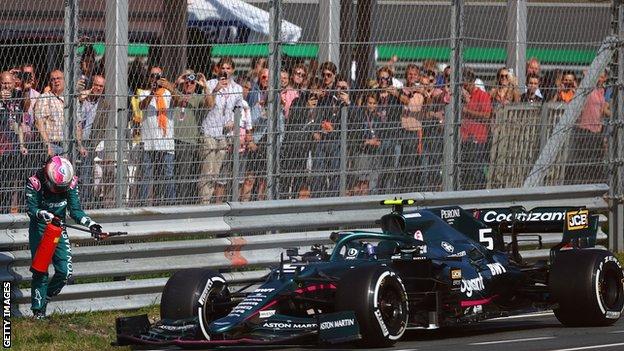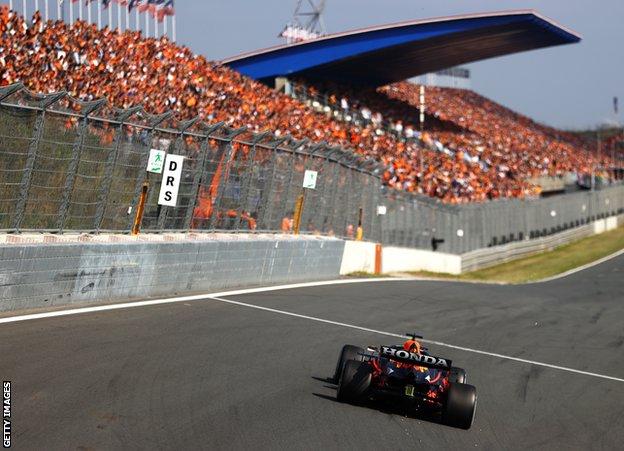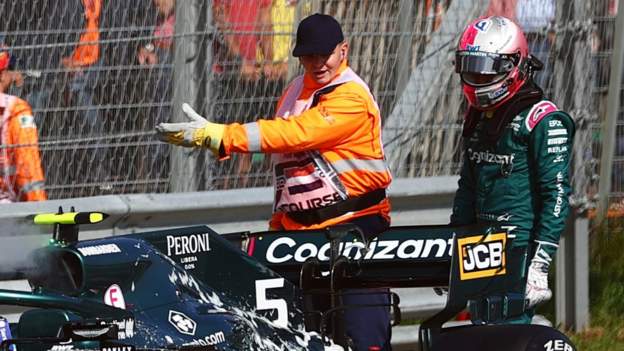
Lewis Hamilton headed title rival Max Verstappen in a bizarrely truncated first practice session at the Dutch Grand Prix.
The hour-long session was interrupted for nearly 40 minutes when Sebastian Vettel’s Aston Martin stopped on track with a suspected engine failure.
The car was still electrically live, delaying its recovery to the pits.
Running resumed with only six minutes remaining and Hamilton edged Verstappen by 0.097 seconds.
The Ferraris of Carlos Sainz and Charles Leclerc were fourth and fifth respectively, ahead of the Alpines of Fernando Alonso and Esteban Ocon, Alfa Romeo’s Antonio Giovinazzi, Aston Martin’s Lance Stroll and Pierre Gasly’s Alpha Tauri.
McLaren’s Lando Norris was 11th fastest and Williams driver George Russell 15th.
This weekend is the first time F1 cars have raced at the historic Zandvoort track since 1985, and the challenging layout was the subject of much anticipation among the drivers.
But they did not get anywhere near as much experience of the unique layout – featuring two heavily banked corners – as they would have wanted.
After the initial runs – little more than sighters for drivers who have either never experienced Zandvoort before or did so several years ago – Norris was fastest from Verstappen, Bottas and Hamilton.
But then Vettel ground to a halt at the exit of the pit lane, having left a trail of oil behind his car.
There followed what many will see as a borderline farcical sequence of events, the full explanation for which is not yet available.
Vettel grabbed a fire extinguisher from the marshals and put out the small fire in the engine bay himself, presumably because he could see the car was still electrically live and could not be touched.
But once the fire was out, it was many minutes before a marshal arrived on the scene dressed in insulating clothing and with rubber sheets to cover the car.
Eventually, engineers from Aston Martin arrived and the car was removed, but there will be questions as to why it took quite so long.
Governing body the FIA said: “The delay was due to two factors – firstly the car going from an ERS-safe to an ERS unsafe state, meaning we had to take all necessary precautions during the recovery. Then we had a safety systems issue that needed to be reset before the session could resume.”
ERS is the acronym used for the hybrid system in an F1 car.
The session resumed with only six minutes remaining, leading to a hectic period on the tight, twisty track.
The heavy traffic led to one incident in which Ocon seemed to push Norris on to the grass.
But in the end everyone got through the session unscathed.
The biggest loser apart from Vettel was Alpha Tauri’s Yuki Tsunoda, who had a spin on his first lap when he was doing aerodynamic calibration work, and never returned to the track.

